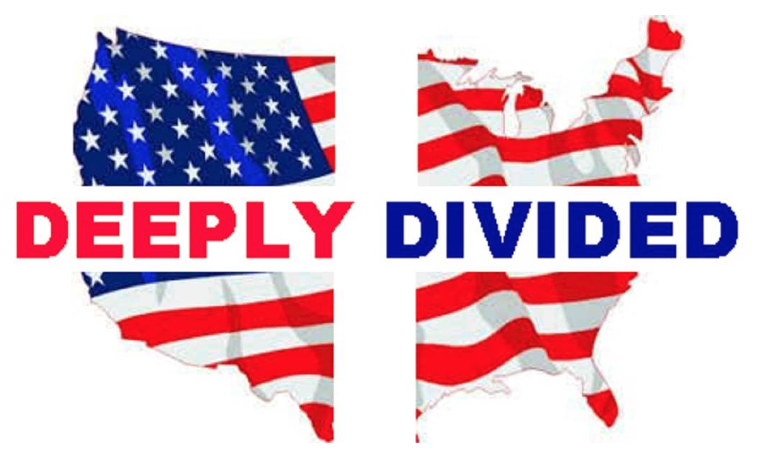CommentsGETTING ALONG-As America waits on the results in an extremely close result in the electoral college, it is important to remember that the identity of the eventual winner is simultaneously extremely consequential and also somewhat irrelevant to a key challenge facing the nation.
No matter how you feel about the eventual outcome, Americans of all stripes must face the fact that a vital task for the nation is healing our deep social and cultural divisions.
Our nation is divided in half about how we see this nation’s past, present, and future. If our future elections are to be less divided and our politics more productive, we need to start the work of reconciliation through dialogue.
How might we begin? For starters, we all need to search for a way for us to describe the divide is how the different sides approach American history. We need to find a description of our divergent views that doesn’t sugar-coat the differences but also does not insult anyone.
I believe that a large portion of the American public loves our country and its ideals but sees the nation’s march through history as one that is deeply intertwined with rampant racism, misogyny, colonialism, and even genocide. Many of us feel that these historical realities have directly affected the course of our lives and that of our family and ancestors. For this half of us, our patriotism is grounded in the solidity and grandeur of the ideals of the nation, despite the fact that Americans have sometimes been deeply oppressive in the name of those very ideals.
For about an equal number of us, America’s history fills our heart with pride rather differently. For this half of the public, their patriotism is less on the nation’s ideals and the way we think about the actions the nation has taken. Our historical narrative emphasizes heroic fights for freedom and against oppression, explorers bravely conquering the elements and hostile populations as they expanded the frontier, and altruistic sacrifice by the military to spread the God-given freedoms around the globe. For this half of us, the contradictions and failings in our history are, at best, sidebars to a more dominant story about American exceptionalism and the glorious path ever toward progress.
Can we create a common narrative that we can all get behind? Maybe, but we certainly can’t as long as we see each other as enemies whose views are despicable, ignorant, or otherwise worthy of scorn. But if we start actually talking to each other about our personal experiences of learning and relating to history, perhaps something new can emerge. Maybe we can craft a collective narrative where the people who led the nation’s expansion were both freedom fighters of considerable bravery as well as folks who were deeply oppressive and sometimes involved in genocide.
If Americans are going to try to work together on the specific problems of popularizing a new national narrative or address our polarization more broadly, we are going to need more people shifting their conversational style away from the debate mode and toward one that is based more on dialogue. This change will involve people making at least three major changes.
First, we need to shift our intention. In our extremely polarized time, we too frequently go into such conversations with goals that don’t help us bridge our divides. Specifically, we too frequently focus on demonstrating - to ourselves, the other person, and anyone who might be listening -- that we are correct, and the other person is wrong. It is as though our goal is to find the answer to the question: What can I say that proves my debate opponent’s position is weaker than mine? Instead, we should be animated by a different question, such as: What can I say so that my dialogue partner so that we might discover an authentic connection?
Second, we need to do focus less on stating our beliefs and supporting facts and more on revealing the personal experiences that undergird our beliefs. Conversations focused on sharing experiences led us to our beliefs touch our hearts, not just our heads, and leave help create more empathy between people.
Finally, we all need to try to spend more time in these conversations truly listening and less time talking. Too often, our focus when we are not talking is actually focused on preparing our next remark, instead of trying to see the issue from the standpoint of the other person. Our conversations will go very differently if our focus is on trying to imagine ourselves having the experiences they have had. The combination of their storytelling about experiences (my previous point) and our focus on listening will significantly reduce the sense of deep estrangement that we often feel when talking to people who beliefs about the world vary greatly from our own.
This election has showed us that if we are scared of the other side’s potential to damage to our democracy, on the order of 150 million of us will fight through a pandemic, comically long lines, and voter suppression efforts to vote. Now that the most divisive election is 170 years is finally over, the work of saving our democracy takes a new form.
Let’s hope we can replace the fear and loathing in our hearts from each other with the curiosity and compassion that are the heart of dialogue. The continued functioning of our democracy may depend on it.
(Dr. David Campt is the principal of The Dialogue Company.) Prepped for CityWatch by Linda Abrams.















